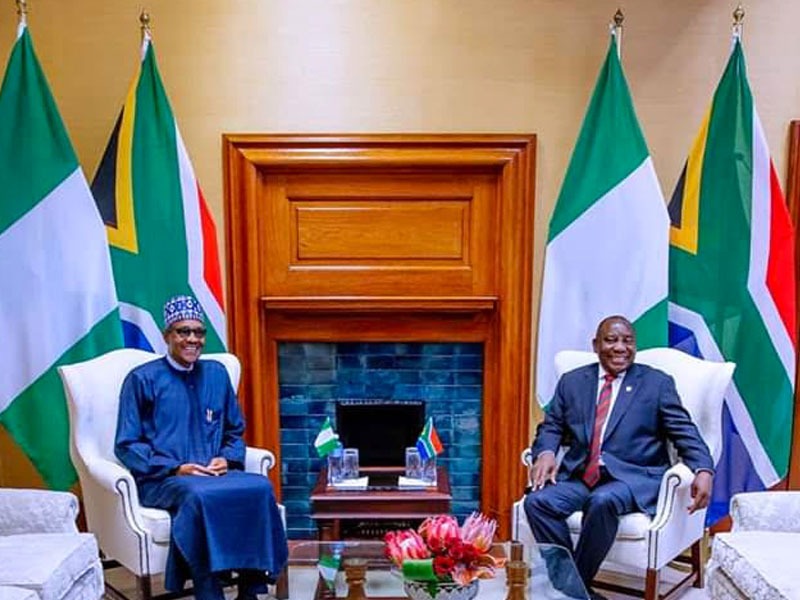- Nigeria-South Africa Signs 32 Deals Following Attacks
President Muhammadu Buhari and President Cyril Ramaphosa of South Africa have started mending relations following the recent Xenophobic attacks on foreigners in South Africa.
The two Africa’s largest economies signed 32 new deals to foster a new trade relation and address violence against immigrants.
“As the government of South Africa, we have expressed our deep regret at the attacks directed at foreign nationals and our condemnation of all forms of intolerance and acts of violence,” Ramaphosa told journalists.
He said South Africa and Nigeria signed 32 bilateral agreements and Memorandum of Understanding covering science and technology, defence, trade and industry, agriculture and energy.
President Buhari, however, said beyond the economic partnership, Xenophobic attacks need to stop completely.
Buhari said: “We decided to take concrete measures to prevent the recurrence of such unacceptable incidents in the future.”
The Nigerian president also tasked South African government to open up its economy for Nigerian businesses and protect them like Nigeria is protecting South African own businesses.
Buhari, who spoke at the inaugural meeting of the ninth Bi-National Commission in Pretoria, South Africa, told his host that South African businesses in Nigeria enjoy unrestricted access to market opportunities with protection.
The president, therefore, urged the Cyril Ramaphosa led government to design policies that would encourage investments from Nigeria and not chase them away.
Malam Garba Shehu, presidential spokesman, quoted the president as saying, “We are pleased to inform you that our government has made doing business in Nigeria easier through the Ease of Doing Business Initiative to open up more opportunities for investors in Nigeria.
“We call on the Government of South Africa to also take steps to ease the doing of business in the country, and open up its market space for Nigerian businessmen and women.
“In this context, we are gratified that a Nigeria-South Africa Business Forum has been organised in the frame work of this state visit.”

 Forex2 weeks ago
Forex2 weeks ago


 Naira1 week ago
Naira1 week ago
 Naira4 weeks ago
Naira4 weeks ago
 Company News4 weeks ago
Company News4 weeks ago




 Naira2 weeks ago
Naira2 weeks ago
 Billionaire Watch1 week ago
Billionaire Watch1 week ago




 Naira1 week ago
Naira1 week ago




 Naira3 weeks ago
Naira3 weeks ago






















